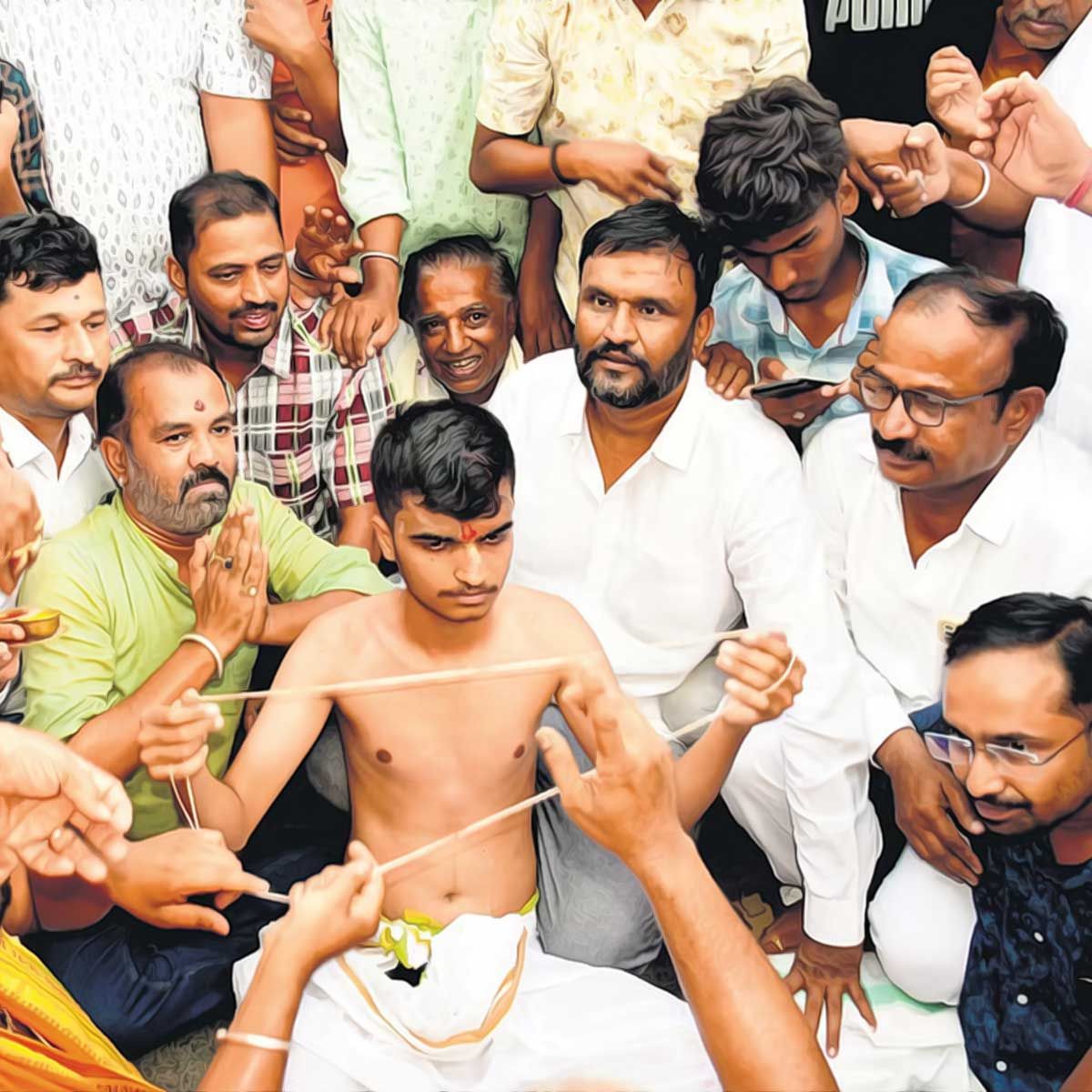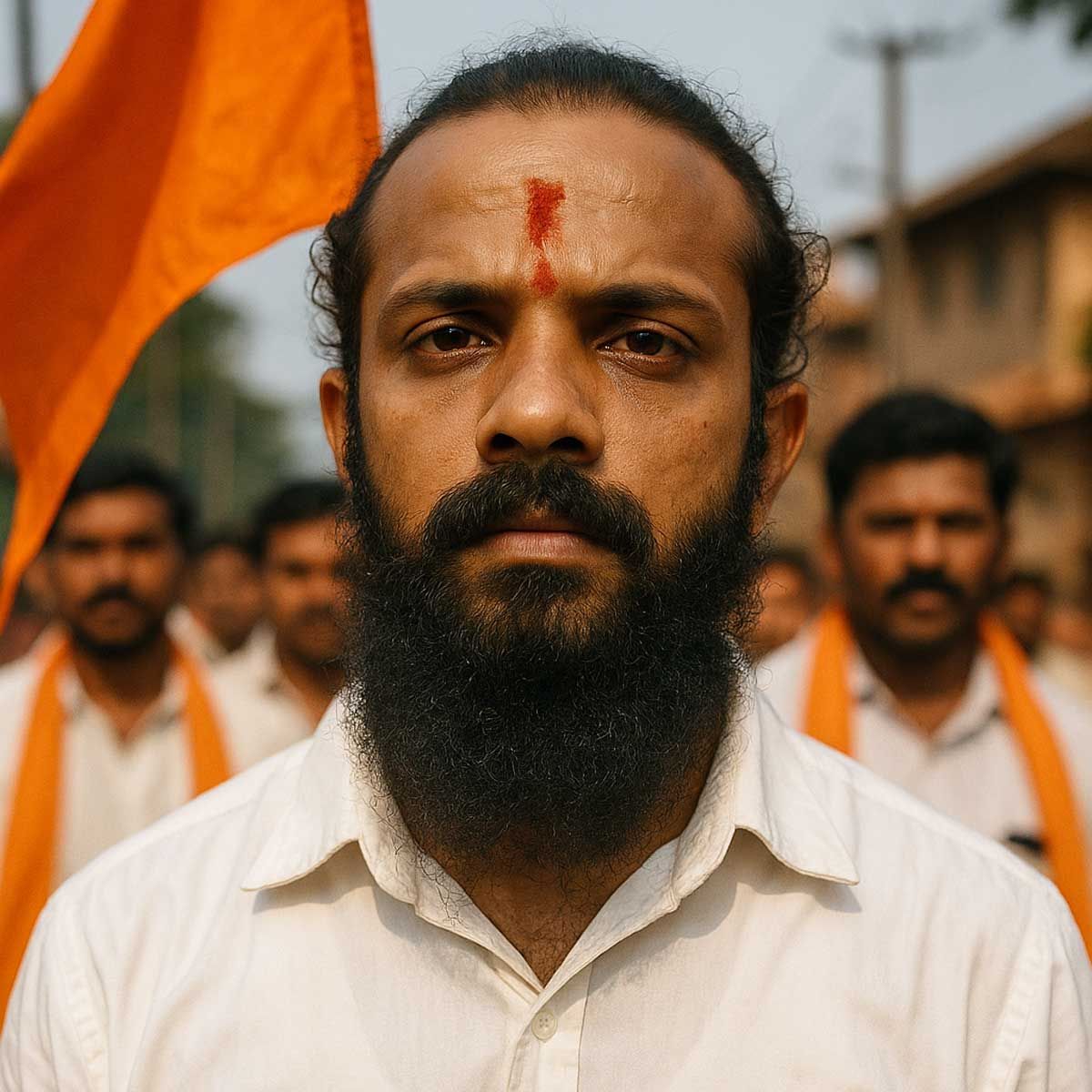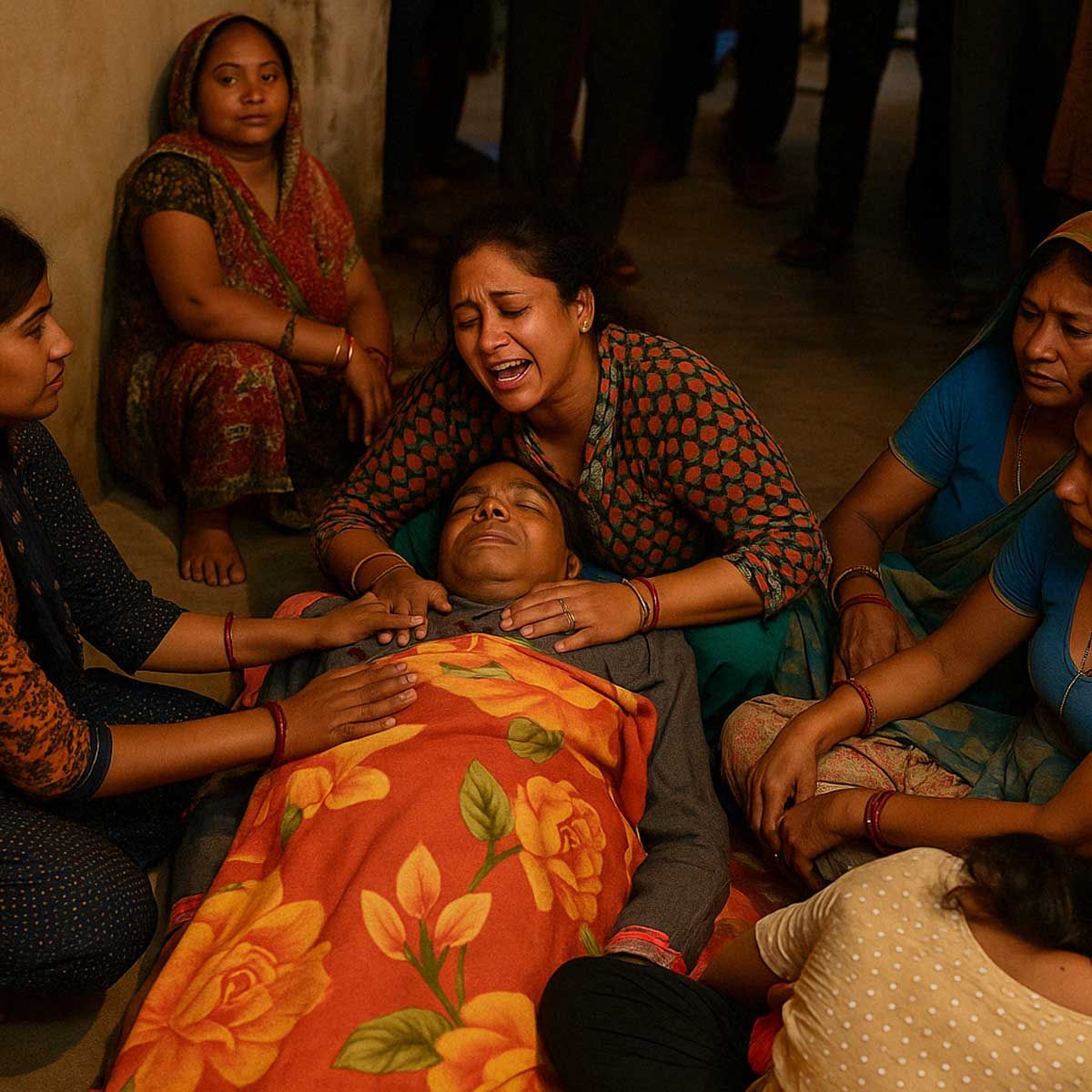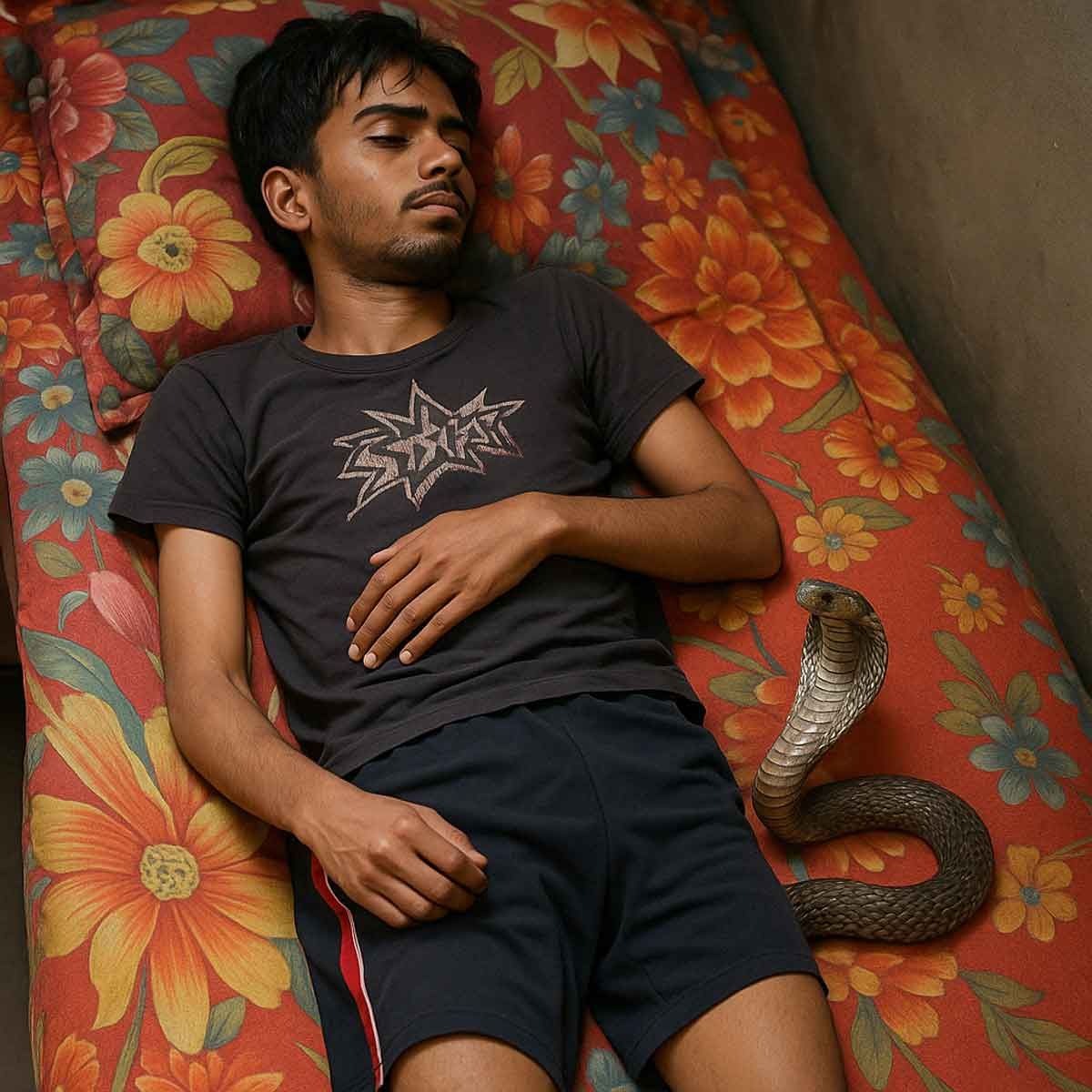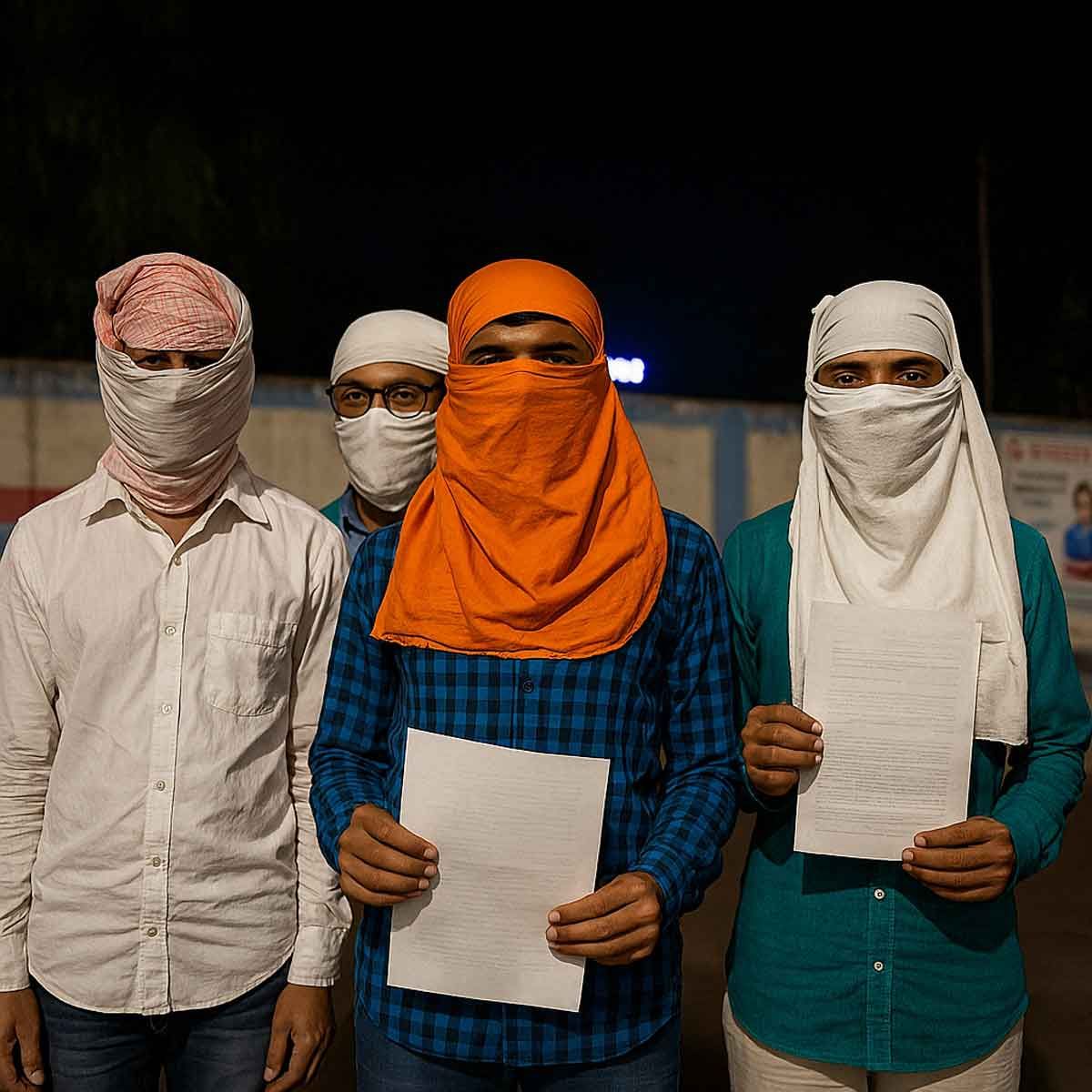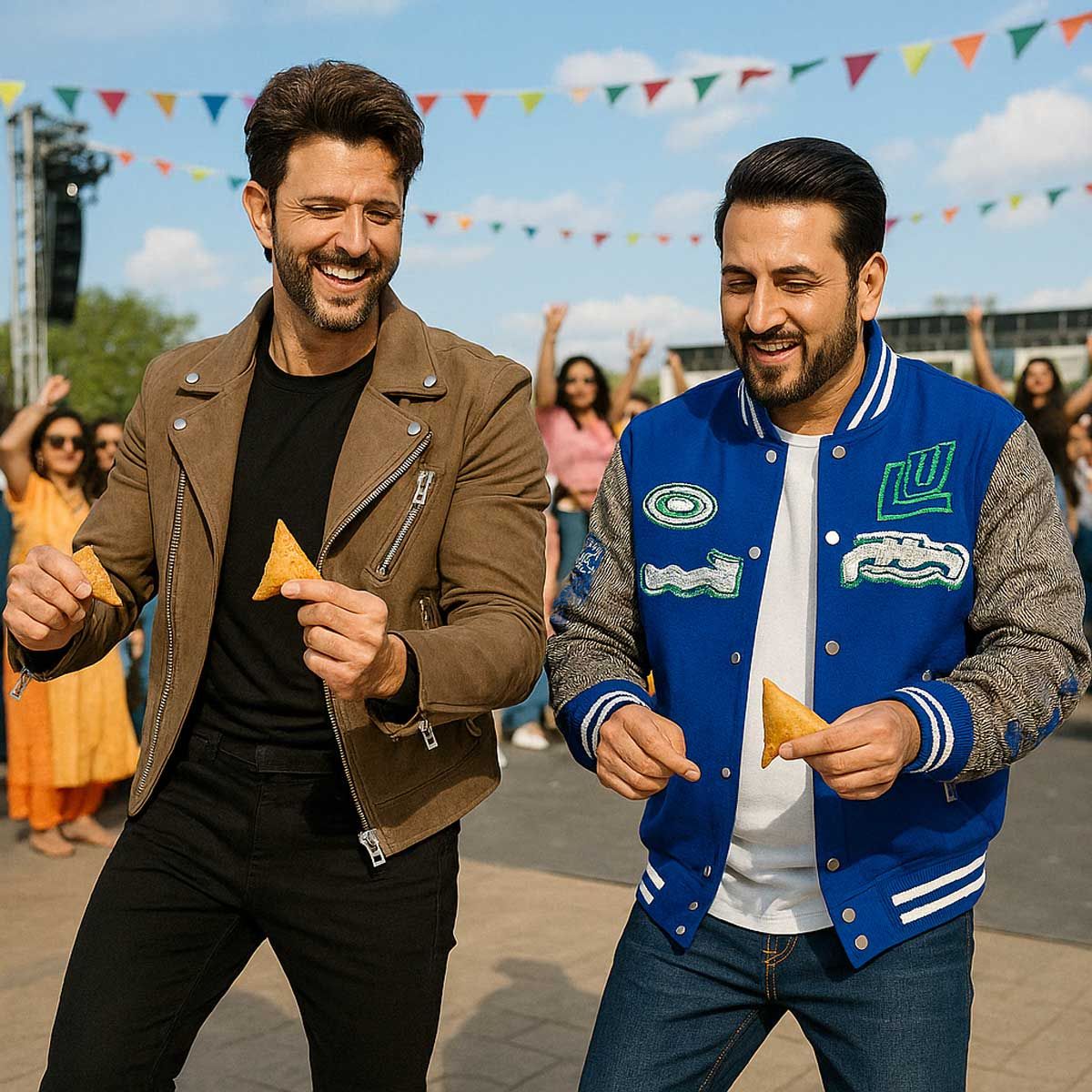More Coverage
Twitter Coverage
Satyaagrah
Written on
Satyaagrah
Written on
Satyaagrah
Written on
Satyaagrah
Written on
Satyaagrah
Written on
JOIN SATYAAGRAH SOCIAL MEDIA
“A real friend is one who walks in when the rest of the world walks out”: PM Modi hails Indian relief teams work, says India strengthened identity as a selfless country, India launched 'Operation Dost' for assistance to Turkey and Syria after earthquake

NEW DELHI: Prime Minister Narendra Modi on Monday lauded the Indian assistance and disaster relief teams that were deployed in quake-hit Turkey and said that in the last few years, India has strengthened its identity not just as a self-sufficient but selfless country.
A total of three NDRF teams were sent to the quake-affected country on February 7 following Prime Minister Modi's directive to offer all possible assistance to that country.
The Indian Army's medical team had also been deployed for providing extensive services to a large number of earthquake-hit people.
Addressing the personnel who had returned from quake-hit Turkey, Modi said, "You have done great service to humanity and made India proud."
"We consider the world as one family and see it our duty to quickly help any member in crisis," Modi told the relief teams.
India has strengthened its identity in the last few years as a country of self-sufficiency which is also selfless and helps other countries, he said.
He said India is always ready to be the first responder whenever there is a crisis in the world.
"We have to strengthen our identity as the world's best relief and rescue team," he added.
In a tweet, Modi said their efforts in disaster response and relief measures have been commendable.
Earlier in the day, Ministry of External Affairs Spokesperson Arindam Bagchi said the Indian Army's medical team deployed under 'Operation Dost' in Turkey has touched down in India.
The 99-member self-contained team successfully set up and ran a fully equipped 30-bedded Field Hospital in Iskenderun, Hatay, attending to nearly 4,000 patients round the clock, he said.
"Final NDRF team under #OperationDost returns home from Türkiye. 3 Teams of 151 @NDRFHQ personnel & dog squads extended assistance to earthquake affected Türkiye," Bagchi had said on Twitter on Sunday.
"Teams executed search, rescue & relief operations including life detection in 35 work sites of Nurdagi & Antakya," he said.
India launched 'Operation Dost' to extend assistance to Turkey as well as Syria after various parts of the two countries were hit by a devastating earthquake on February 6 that killed more than 40,000 people.
India’s HADR diplomacy: Earthquake relief in Türkiye and Syria
The earthquake that hit Türkiye and Syria simultaneously, one of the strongest in a century, brought incredible levels of destruction to the region with conservative estimates putting the death toll at over 40,000. The calamity has also affected swathes of northern Syria, a region already in dire straits due to years of conflict, including nearly half a decade of Islamic State (ISIS or Daesh in Arabic) insurgency.
India’s humanitarian assistance and disaster relief (HADR) capacities tying into its diplomacy have grown significantly since its initial days—institutionalized in wake of the 2011 tsunami disaster that struck multiple locations around Asia. Of course, one of the most defining diplomacy initiatives in this part of the world, the Quad, was also conceived out of an initial blueprint to build disaster response systems in the region. Since then, India’s own capacities have been visible in many disaster-struck regions, with the National Disaster Response Force (NDRF) often deployed as both man-made and climate change-made disaster points have only increased over time. New Delhi even offered a helping hand to Pakistan in wake of its devastating floods late last year, and during the COVID-19 pandemic was one of the first to deploy capacities across the West Asian region. Keeping these traditions in mind, it was no surprise that New Delhi mobilized quickly to dispatch aid for both Türkiye and Syria.
Ankara’s long-standing stance on Kashmir and backing Pakistan, specially at the United Nations (UN), pushed some to ask why India was offering aid if Türkiye did not back India’s sovereignty.
HADR capabilities and presence lie at an interesting juncture of geopolitics, that being soft power where presence and narrative are mixed with solidarity and empathy at a time when suffering populations require as much help as possible. However, there are geopolitical trade-offs as well, also often in soft power, as positive perceptions of states and their institutions working in disaster zones often bypass governments and deal with the public directly. For New Delhi, these capacities are now part of its global positioning as it promotes an ‘Indian pole’ in the global order.
|
|
Aid for Türkiye
The time taken between India announcing and mobilizing aid for Turkiye was quick, as NDRF teams along with Indian Air Force C-17s made multiple trips to deliver aid, search teams, set up field hospitals, and so on. The public reception to this within India was, as per expectations, mixed. Ankara’s long-standing stance on Kashmir and backing Pakistan, especially at the United Nations (UN), pushed some to ask why India was offering aid if Türkiye did not back India’s sovereignty. The simple answer here is that diplomacy is complicated, and more than often does not exist in black and white, but within strategic grey zones. Disaster response is almost never seen as helping a state, but the people with whom a strong connection should be built and preserved. While many questioned India’s aid to Türkiye from the lens of geopolitics, not many brought up the fact that Türkiye as well, like others, had sent oxygen aid to India at the peak of the COVID Delta wave in 2021.
The earthquake now poses more challenges for Erdogan as Türkiye looks to go into elections in June this year, leaving mere days for the leadership to successfully rehabilitate the earthquake survivors both socially and economically.
Soft power is often developed using tools such as aid and solidarity at a time of global crisis, and with such crises becoming more frequent, the space for geopolitical one-upmanship, for example around adverse climate events, will be small as such events do not recognize the limitations of both physical and mental man-made borders. New Delhi’s prompt response to Türkiye comes on the back of somewhat thawing relations between the two countries. The reasons for this range from an economic crisis in Türkiye to a level of normalization of relations with other regional powers such as the United Arab Emirates (UAE) and Saudi Arabia. A lot of Turkish President Recep Tayyip Erdogan’s anchoring of both ideology and power came from the post-2016 coup attempt which he blamed on external powers, and where he saw a re-enforcement of his political position domestically, regionally, and internationally being critical to not be seen as a weak leader. The earthquake now poses more challenges for Erdogan as Türkiye looks to go into elections in June this year, leaving mere days for the leadership to successfully rehabilitate the earthquake survivors both socially and economically.
|
Complications for Syria
On the other side of the border, northern parts of Syria, already devastated due to years of civil war in wake of the Arab Spring and Islamic State (ISIS or Daesh) insurgency, suffer largely in silence. In contested areas such as Idlib, militias fighting against Syrian President Bashar Al-Assad’s government control the space, and disaster management has come under their rule, complicating aid delivery significantly. Rebel leader Abu Mohammad al-Jolani, officially designated as a terrorist by the US in 2013 for being the leader then of Al Nusra Front, a splinter group of Al Qaeda, has demanded the UN to send help to the region that his Salvation Government controls.
India has maintained normal relations with Damascus through much of the crisis, as Iran and Russia stepped in over the years to make sure Assad remains in power. Over the past year, Arab neighbors that had isolated him, returned to a level of normalcy in a sign of acceptance that Assad had managed to hold on to power despite reports from the Organisation for the Prohibition of Chemical Weapons (OPCW) suggesting that there was ‘reasonable ground’ that the Syrian government had used prohibited weapons against its own population. However, the global capacity to manage conflicts does not see Syria as a cause to rally behind too much anymore, and Assad is placed to try his best to make this ‘disaster diplomacy’ work in his favor for long-term stability and the international acceptability of his government.
India has maintained normal relations with Damascus through much of the crisis, as Iran and Russia stepped in over the years to make sure Assad remains in power.
The above complexities are why India chose to send aid directly to Damascus and via the UN, and not deploy NDRF teams in Syria directly in regions that remain politically contested and where local actors operate with little clarity over their affiliations.
|
Conclusion
Providing relief and aid to not just neighboring, but in the extended neighborhood of West Asia bodes well for the kind of diplomacy India is aiming to conduct in the future. However, public opinion should be well-informed that diplomacy is to sit across the table from those who you disagree with the most, and public diplomacy, such as HADR capacities, remains one of the most effective tools to build capacities on a people-to-people level, the conduct of which needs to be done in a humble way, making it about the people who are suffering, and not first about one’s own capability and intent of providing help. Successful HADR and humanitarian assistance automatically feeds into diplomatic capital, if the first part of it is conducted successfully with a long-term vision in mind.
References:
 Support Us
Support Us
Satyagraha was born from the heart of our land, with an undying aim to unveil the true essence of Bharat. It seeks to illuminate the hidden tales of our valiant freedom fighters and the rich chronicles that haven't yet sung their complete melody in the mainstream.
While platforms like NDTV and 'The Wire' effortlessly garner funds under the banner of safeguarding democracy, we at Satyagraha walk a different path. Our strength and resonance come from you. In this journey to weave a stronger Bharat, every little contribution amplifies our voice. Let's come together, contribute as you can, and champion the true spirit of our nation.
 |  |  |
| ICICI Bank of Satyaagrah | Razorpay Bank of Satyaagrah | PayPal Bank of Satyaagrah - For International Payments |
If all above doesn't work, then try the LINK below:
Please share the article on other platforms
DISCLAIMER: The author is solely responsible for the views expressed in this article. The author carries the responsibility for citing and/or licensing of images utilized within the text. The website also frequently uses non-commercial images for representational purposes only in line with the article. We are not responsible for the authenticity of such images. If some images have a copyright issue, we request the person/entity to contact us at This email address is being protected from spambots. You need JavaScript enabled to view it. and we will take the necessary actions to resolve the issue.
Related Articles
- Lakshmi Narasimha Swamy Temple, Antarvedi, Andhra Pradesh
- The Untold Story of the Brave Maratha Warrior Queen Ahilyabai Holkar!
- Culture And Heritage - Meenakshi Temple Madurai
- अथ रामचरितमानस प्रकाशन कथा: गीता प्रेस, गोरखपुर ने 1938 से रामचरितमानस का प्रकाशन शुरू किया
- The forgotten temple village of Bharat: Maluti
- रामचरितमानस एवं उसके अंग्रेजी अनुवाद तथा हिंदी के अकेडमिक्स का दोहरा रवैया
- Birsa Munda: The tribal folk hero who was God to his people by the age of 25
- Why India’s temples must be freed from government control
- Sripuram Golden Temple: Interesting Facts about World’s Largest Golden Temple in India
- Jagannath Temple administration issues clarification on proposed sale of temple lands
- Gita Press Gorakhpur – Bringing Sacred Hindu Texts to Every Hindu Home
- Yes, Secular India’s shift towards ‘Majoritarianism’ is very much real: So, just deal with it
- Righteousness vs Loyalty: Prince Rama obeys his father and leaves the Ayodhya kingdom
- A new symbol of Hindutva pride, Shri Kashi Vishwanath Temple Corridor
- Manyavar commercial featuring Alia Bhatt vilifies Hindu wedding ritual Kanyadaan: Why not object Western practice of ‘giving away the bride’ and Nikah (marriage contract)















